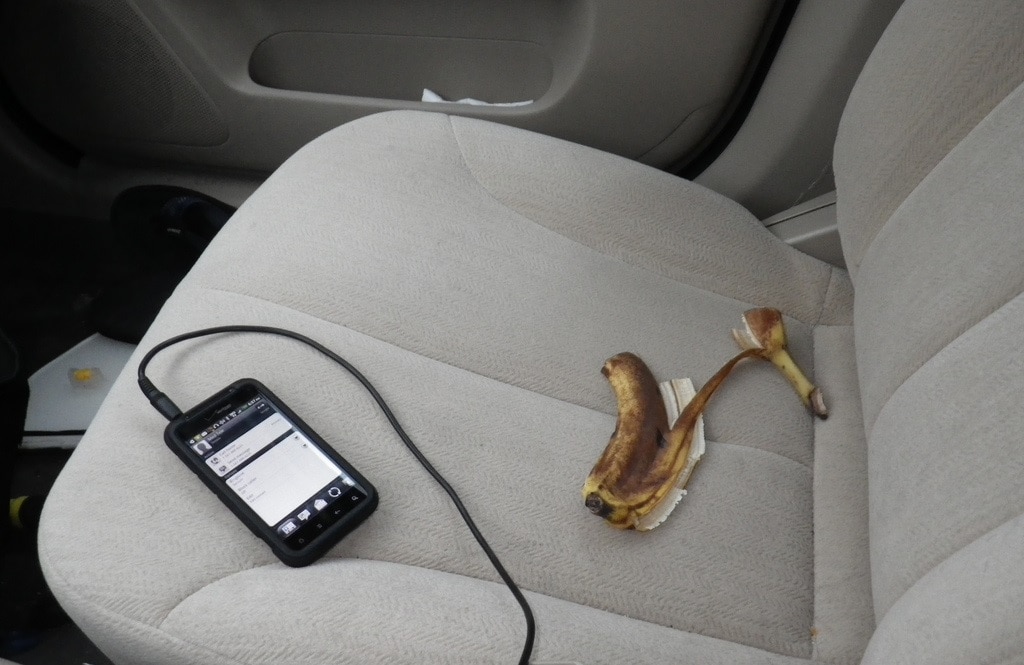Slate Confuses Sales Volume With Sale Price, Draws Wrong Conclusion About Digital Adoption


Tell me if you can guess what they are:
Imagine, for a moment, that you want to buy The Complete Works of Primo Levi edited by talented translator Ann Goldstein. If you were to buy a new version of the hardcover collection on Amazon, the price is $58.40. If, however, you decided that rather than adorning your shelves with Levi, you wanted to download it to your e-reader, saving yourself paper and time, you would need to pay $59.49. It would cost you more not to physically own the books.
Of course, it’s just a difference of $1.09. But spend some time on Amazon and a trend becomes clear: Many (though certainly not all) digital versions cost more than their physical counterparts. The Blu-ray Disc of the Christmas classic Love, Actually costs a very reasonable $8.68, but to download and buy the HD version on Amazon Video costs $14.99. (To download and rent it costs $3.99, while a used version is only $2.37). Download Beyoncé’s Lemonade from Apple to your iPhone for $17.99, but get the CD on Amazon for just $15.76.
Certainly this is far from the case in every instance—there are lots of examples of the digital version being cheaper than the physical. But the list will only get longer, raising the question: Why are we increasingly paying more money to not actually have the thing we’re buying? Amazon and Apple acknowledged receipt of but did not respond to requests for comment. But while we cannot know their official answers, we can nevertheless speculate as to why we’re now paying more to own without physically owning.
Skate cites high prices, but what Slate forgot to include in their article was evidence that people are actually buying the digital content at those high prices.
Yes, the digital prices are sometimes higher than the prices for the related physical media, but that doesn’t tell us whether people are, as the subtitle said, "increasingly paying extra to get the digital version of a book or movie".
It just tells us the sale price for the digital copy is higher, not that people are "increasingly" paying that price. And that distinction is important, because in the case of ebooks consumers are _not_ paying the higher price.
Take the collected works book mentioned above, for example. The print edition ranks at 4,699 in the Literary category, while the Kindle edition ranks at 17,598 in that same category.
The print book is more popular by at least an order of magnitude, so no, people aren’t "increasingly paying extra to get the digital version of a book".
They’re buying the print edition instead, but of course that will come as no surprise to anyone who has followed publishing industry revenue stats over the past year.
The AAP has been telling us for the past year that the Big Five’s high ebook prices have lead to steadily decreasing ebook sales. The most recent data (from May 2016) showed that traditional publishers' ebook sales had dropped 18% from last year.
So yes, ebook prices are high, but consumers aren’t "increasingly paying extra to get the digital version of a book".
They’re buying the (used) print book instead, or getting it from the library.
Speaking of which, Slate also failed to consider whether high prices might be driving consumers to borrow more content from the library, or perhaps use a subscription streaming service like Netflix or Amazon Prime Video.
But that doesn’t really matter, given that Slate failed to supply any factual basis for their speculation.
This piece rests on the claim that people are paying more for digital content, and as we can see from ebook revenue stats that is simply not true.
And that renders moot any speculation as to _why_ people are paying more for digital.
Thoughts?
image by Mosman Library



Comments
Frank October 28, 2016 um 9:23 am
Slate has been going downhill the last few years, their editors are letting poor pieces go out.
TheSFReader October 28, 2016 um 9:46 am
Since I prefer to read in ebook format rather than paper, I’d say that I value MORE ebooks than their paper counterpart. However, i’s because for ME (and except for a few exceptions), a paper books has lost any appeal, and I’d say I value them to $0…
However, that doesn’t mean I buy the ebook version at a higher price than the paper one, just that I pass on the book when the ebook is (to me) overpriced…
For an ebook, the fact that I may not resell them or that the price doesn’t include any "material" cost is offset by the fact that I can use it on my ereader as I want, that I save it on my computer (regardless of the F***ING DRM). And except for favorite authors, I won’t pay more than a paperback’s price.
BDR October 28, 2016 um 10:34 am
Actually, it is only the Big 5 who are jacking up the price of their e-book content and the entire reason for this is so that folks do NOT buy their e-book content.
When the world is digital, authors will no longer need to surrender the majority of the profit to publisher middle-men because they can simply sell it themselves or go through Amazon directly. The Big 5 know this all too well and high prices are their solution for preventing this digital takeover.
You’re correct that the Slate article missed the point but not for the reason that you gave.
Nate Hoffelder October 28, 2016 um 11:35 am
You’re getting into the why; I stopped at the what. i think the latter is the more important detail.
Jennifer October 28, 2016 um 1:15 pm
Also, a CD, DVD, or Blu-ray disc are still digital formats, they’re just digital formats that are delivered on a physical medium.
Personally, I don’t consider the price of a thing I don’t want (physical book) when determining if the price of the thing I do want (ebook) is reasonable. If I don’t think the price is reasonable, I just do without until the price drops to something I’m willing to pay.
Nate Hoffelder October 28, 2016 um 1:27 pm
Yes, it is pretty easy to convert a CD/DVD/Blu-ray to a digital file.
Marion Gropen October 28, 2016 um 2:51 pm
When you see a higher price for the ebook than for the print, you’re seeing a distortion of the publishers' pricing. It’s an artifact of the war between Amazon and publishers.
The print edition’s MSRP is higher than that of the ebook, but Amazon is discounting it almost to the price that they pay the publisher.
The ebook’s edition remains at the MSRP.
The difference in discounting inverts the relationship between the MSRPs.
As for why major houses are pricing ebooks so much higher than the author-publishers do: I see two prongs here. First, I think that publishers are cutting their fiction lists and focusing tightly on those books where their resources can make the biggest difference in results. Those are the blockbusters.
Blockbusters can command a higher price point (initially, with price drops as the titles age).
Second, I think that they’re setting price points that will remain viable when the mmpb formats is nearly extinct.
Will O’Neil October 28, 2016 um 4:09 pm
Of course you are completely right, Nate. I’ve spent enough time in corporate board meetings (other industries) to know that the tradpubs have a rationale, and that it may very well be just as divorced from any reality as it seems to us.
I buy a lot of old used books for research purposes, which I promptly take apart and scan to make PDFs. (FedEX (Kinko) Office stores will disbind books by shearing off the spine for a modest charge.)
Paul Biba’s eBook, eLibrary, eMuseum and ePublishing news compilation for week ending Saturday, October 29 | The Digital Reader November 2, 2016 um 1:24 pm
[…] Slate Confuses Sales Volume With Sale Price, Draws Wrong Conclusion About Digital Adoption (The Digital Reader) […]